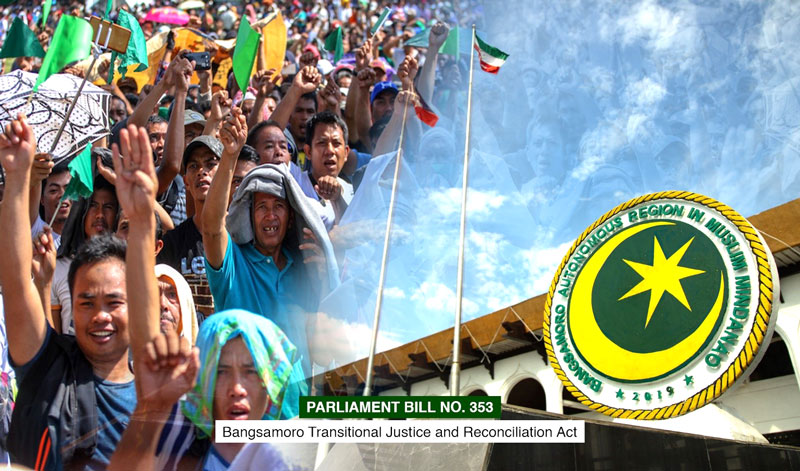
COTABATO CITY — The Government of the Day has filed Parliament Bill No. 353, or the Bangsamoro Transitional Justice and Reconciliation Act, a proposed law aimed at confronting decades of historical injustice, human rights violations, and land dispossession in the region.
BARMM Chief Minister Abdulraof Macacua has named the proposed measure a priority bill, urging lawmakers to pass it before the end of the transition period.
“This measure allows us to begin healing,” Macacua said during the ceremonial opening of the fourth regular session.
“We must start locally implementing justice and reconciliation efforts as we wait for a national mechanism. This is how we honor the victims, confront our past, and build peace from the ground up.”
The bill seeks to establish the Bangsamoro Transitional Justice and Reconciliation Commission (BTJRC), an independent body that will lead a regional program for transitional justice and reconciliation.
Once enacted, the law will complement—not replace—the national government’s responsibility to address historical grievances, with the Commission’s findings forming part of the national reconciliation framework.
The bill has entered its first reading in Parliament and is being recognized as a direct response to long-standing grievances of the Bangsamoro people and other Indigenous groups in the region.
It is grounded in the Comprehensive Agreement on the Bangsamoro (CAB) and the Bangsamoro Organic Law (BOL).
The proposed Bangsamoro Transitional Justice and Reconciliation Program will serve as the official mechanism to acknowledge and correct historical wrongs, redress human rights abuses, and address marginalization stemming from land dispossession.
The Commission’s recommendations will be submitted to both the Philippine government and the Moro Islamic Liberation Front (MILF) peace negotiating panels.
The bill defines transitional justice and reconciliation as a full range of judicial and nonjudicial measures—including truth-seeking, prosecutions, reparations, and institutional reforms—to address large-scale conflict and repression.
The Commission will operate for seven years, with a possible three-year extension at the discretion of the Chief Minister. It will be composed of five regular members, all of whom must be descendants or spouses of descendants of native inhabitants of Mindanao and the Sulu Archipelago.
The transitional justice program will be guided by the framework outlined in the 2016 transitional justice report, ensuring that the right to truth, justice, reparations, and nonrecurrence serves as the foundation for all related policies and initiatives.
It will follow human rights-based, victim-centered, and future-oriented principles, with sensitivity to both Bangsamoro and Filipino contexts.
The bill also emphasizes diversity, local ownership, and women’s participation in all processes.
The law outlines five core components of the program:
- Human rights violations — documentation and investigation of abuses committed from the American colonial period to the present day.
- Land dispossession — historical mapping of land ownership and displacement, tracing policies from the 1898 Treaty of Paris to the present.
- History, memory, and truth — establishing a comprehensive and accurate account of Bangsamoro history and injustices.
- Institutional reform — recommending changes to prevent future conflict and address systemic issues.
- Stakeholder involvement — ensuring active participation of civil society and local communities in shaping the justice process. (LTAIS-Public Information, Publication, and Media Relations Division



